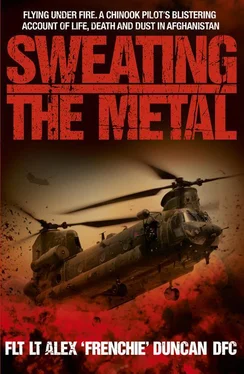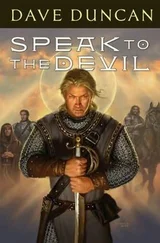We’re gutted. All of us. The aircraft is deathly quiet, everyone gathering their thoughts. I’ve never seen a cab so trashed in the back; there’s equipment strewn everywhere, the detritus of the frantic fight to save lives. But we’ve no time to wallow; we have to prep the cab in case we’re scrambled again. We have a great relationship with the MERT because we fly with them all the time. When we drop the casualties at Nightingale, it’s only the surgeon who goes off with them – the nurses stay on the aircraft. They clean up the cab, prepare it. Jim and Bob are part of the team – they’re all involved. They put on the white all-in-one forensic suits and gloves to protect against contamination and get to work cleaning out the cab and mopping up the blood.
The MERT worked so hard to save those guys. We did everything we could. The aircraft couldn’t have given any more. All that, and it wasn’t enough. Fuck it! Everything we know, all that medical knowledge and it’s not enough. He still died, and what’s worse is, it was within sight of the hospital.
I feel powerless; totally powerless. I feel an intense sadness, but it’s mixed up with anger. Sat on the HLS you have time to think, to replay events. Did we do all we could? Could we have done more? Would it have made a difference? What did we fail to do?
As pilots, we’re tested constantly. We take three or four tests every year, simulator sessions; an off day, one fail, and that’s it. Game over. It’s the end of your flying career. We don’t fail, ever. But suddenly, we’ve given everything and yet we failed.
The death of Captain David Hicks really hit me hard. I’ve picked up the bodies of British soldiers who have died before; I’ve had people die in the cab before, but I’ve not known their names or seen their faces. This is different because David Hicks wasn’t a faceless, nameless person. I knew his name, I saw his face.
Captain David Hicks was twenty-six when he died and, to me, a real hero. He was the acting company commander in charge of fifty men at FOB Inkerman and when an RPG hit the tower that he was in, he received multiple shrapnel wounds. Those wounds made him a candidate for immediate medevac, but he chose to stay even while five others were evacuated, and carried on in command of the outpost.
He reportedly tore off his oxygen mask and refused a morphine injection on the grounds that it might cloud his judgement. He was still insisting on getting back to his men when he lost consciousness. For his actions, he was posthumously awarded the Military Cross. For me, he displayed total leadership all the way to the end. I think he was a rare human being and when you learn all this stuff about him, you question yourself again and again. Did I do everything I could to save him? However much you know that the answer is yes, you still feel responsible; it’s human nature. You take ownership because your two worlds collided.
I still live in mine. I wish the same could be said for Captain Hicks.
After the IRT shift where FOB Inkerman dominated so much of our time, we flew back to the weird hinterland of KAF for some downtime. There was no question that the conditions were better at KAF – the accommodation was brick-built, properly air-conditioned, and the ablutions were much better than the converted ISO containers at Bastion.
The trouble was, living at KAF was like living in the Twilight Zone. While Bastion was all about purpose, KAF felt more like a work in progress that would never quite get to the end state. Aside from the astonishingly large number of REMFs for whom it was a permanent base, almost everyone else there was in transit – either on their way home or on their way to be deployed forward, whether to Kabul, Bastion, a FOB or a Patrol Base somewhere in Helmand Province.
On the plus side, it did have a decent gym we’d sometimes hang out at, there was the Green Bean Cafe, and then there was the boardwalk, the manufactured ‘heart’ of the base. Constructed of raw, unfinished timber, it played host to a range of takeaways and shops, such as Pizza Hut, Burger King, Subway and Tim Horton’s – a Canadian coffee and doughnuts franchise. There were also shops selling local crafts, rugs and ice cream. You could almost forget you were in a war zone at the boardwalk – aside from the background noise of fighter jets screaming overhead, helicopters and transports taking off and the sound of sporadic gunfire. Oh, and the fact that every diner was armed.
Then there was the BX, a gargantuan US-run retail outlet. Rich and I would often look around there, if only to laugh at the bizarre assortment of goods that they sell and see if there was anything new on offer. There never was, of course. It was just the same strange assortment of big fuck-off knives, tactical vests and other gear for Special-Forces types and SF wannabes, near-beer, strangely flavoured ‘potato chips’ and Hershey Bars, that funny-tasting excuse for chocolate that Americans love. We could never work out who bought most of the stuff on offer. I mean, sure, buy all the ‘gung-ho-look-at-me-I’m-Johnny-Rambo’ stuff that some Americans on Det love to buy. Yeah, buy a flat screen 42” TV for your tent, and a PS3 and kit yourself up like Sergeant Rock, but what the fuck to do you do with it all at the end of your tour?
Everything about working and living alongside the Americans was bizarre. I know Winston Churchill said we’re two nations divided by a common language, but nowhere is this more evident than on military ops. Our SOPs, working practices, autonomy on ops – everything is different. A couple of days later, Rich and I were crewing one of the task lines and we had a US AH-64 Apache flying with us.
We were just transiting out across the deconfliction line and they called us over the radio, ‘Ah, Hardwood Thirteen, Destruction One Five. Be advised we are going to test fire the guns,’ so we dropped back behind them expecting to see a bit of 30mm fire from their cannon. That’s one aspect of US military culture I love – their call signs. Ours are all sober and dull – ‘Hardwood’ or ‘Beefcake’, for the Chinooks, ‘Ugly’ for the Apaches. But their Apaches have call signs like ‘Destruction One Five’ or ‘Barbarian One Zero’. Legend!
Anyway, as expected, we saw a hail of 30mm cannon fire from the AH and we were about to move up again thinking they’d finished, when they radioed us to say, ‘Yeah, test firing’s good. Further test fire coming up. Standby…’ and Rich and I looked at one another like, ‘What the fuck?!’ just as they fired rockets at the fucking desert floor! That one thing highlights the dichotomy between them and us from a military perspective – a lot of what they do is so much more laid-back than for us. I guess it’s largely economy-driven; they have so much more money to spend on defence than us, and it shows in the way that they can afford to be so profligate with ordnance. On the other hand, they have very little autonomy in how they operate – micromanagement seems to be the order of the day, whereas in the Army or RAF we are generally given a task or objective and it’s up to us as junior commanders as to how that is achieved.
They were great to work with though, because when we were down at low level, they’d be there with us. When we got down on the deck for the run in, whether that was at 50ft or even 10ft, they’d be right there in the dirt with us on our wing. British Apache crews tend to sit up at around 2,000ft and a couple of klicks back, which gives them a degree of protection while providing them with an overview of the battle area or HLS, but these two guys, wherever we were, they were on our wing all the way. They’re good people – and they have a surprising number of female Apache pilots, something our own Forces could benefit from.
Читать дальше













